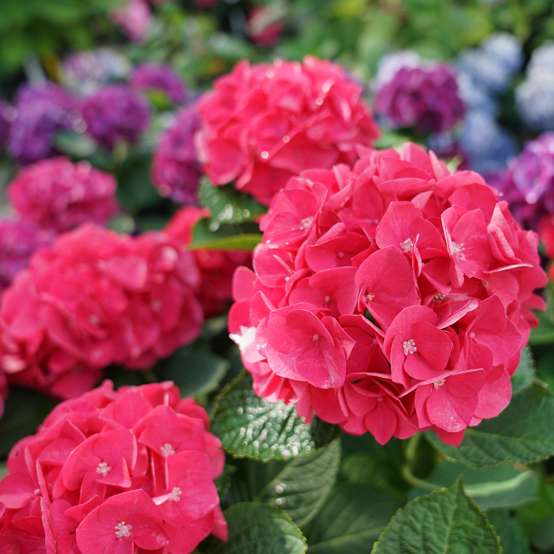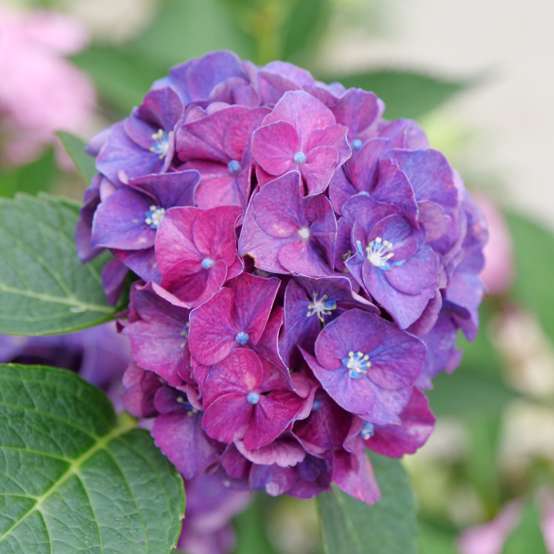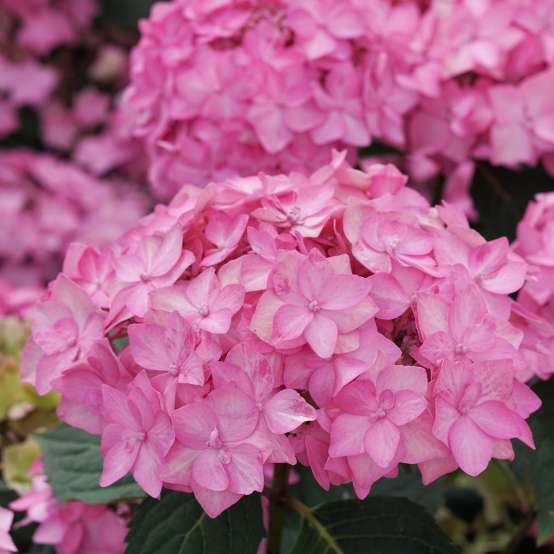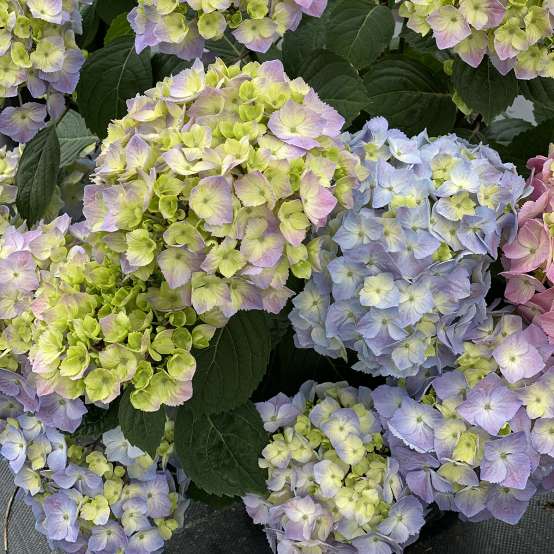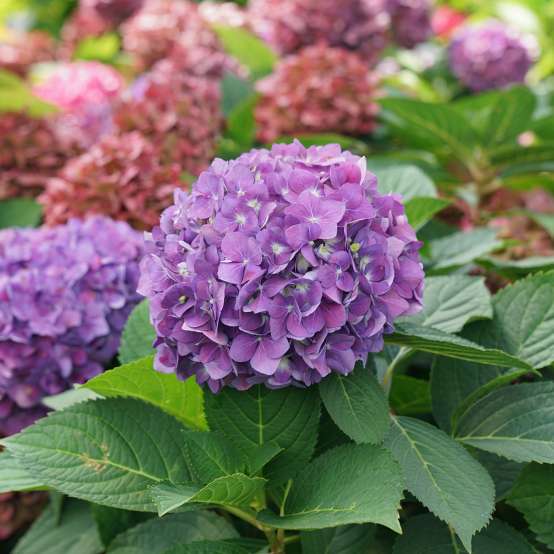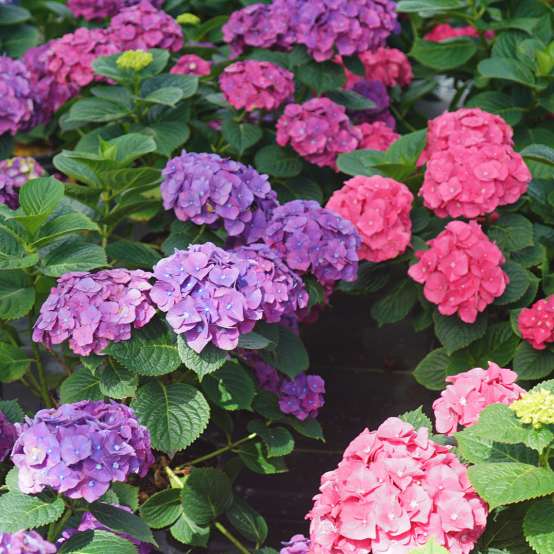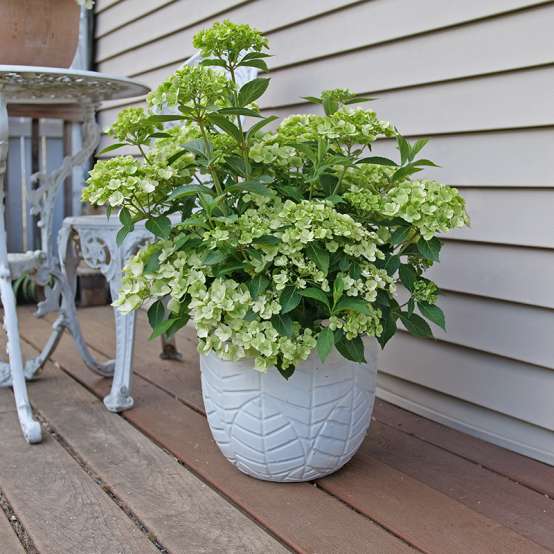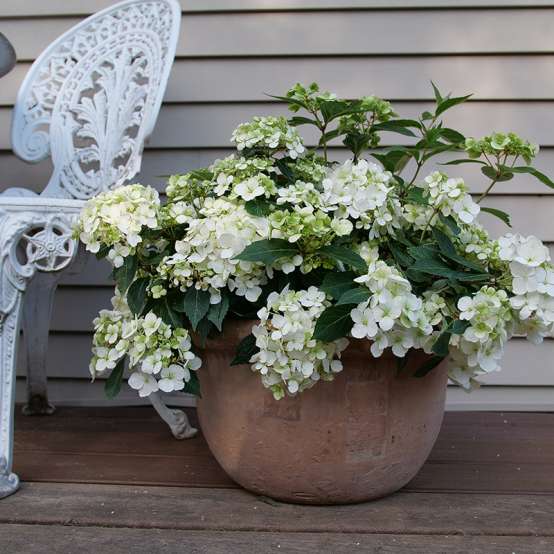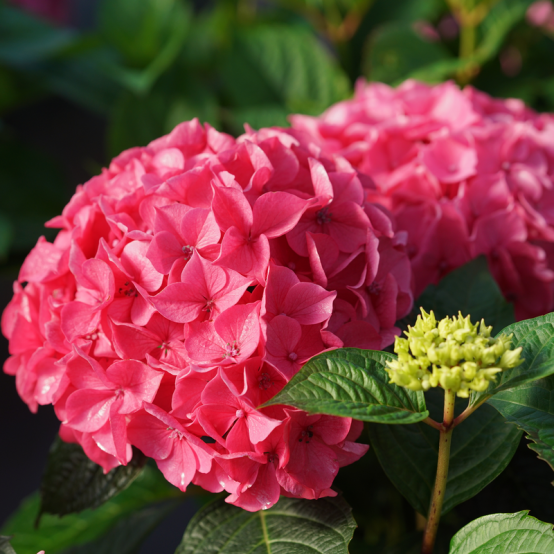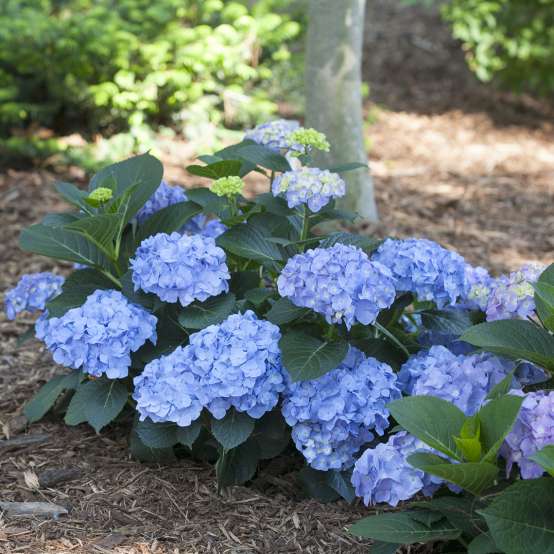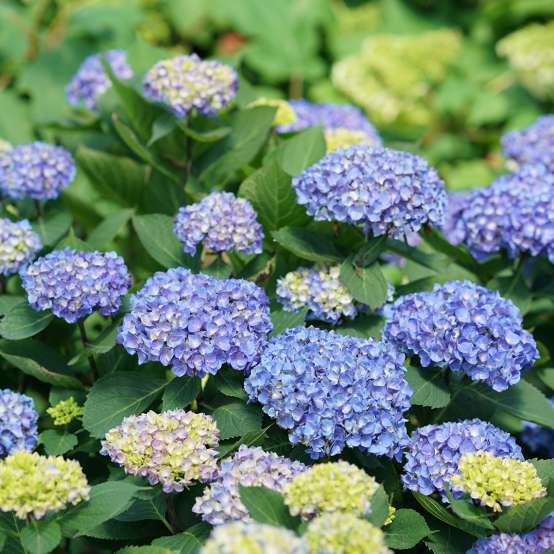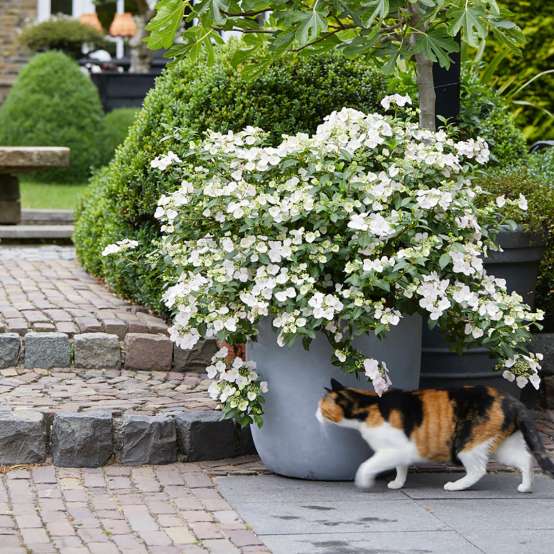Clicking the following controls will change the main image displayed above.
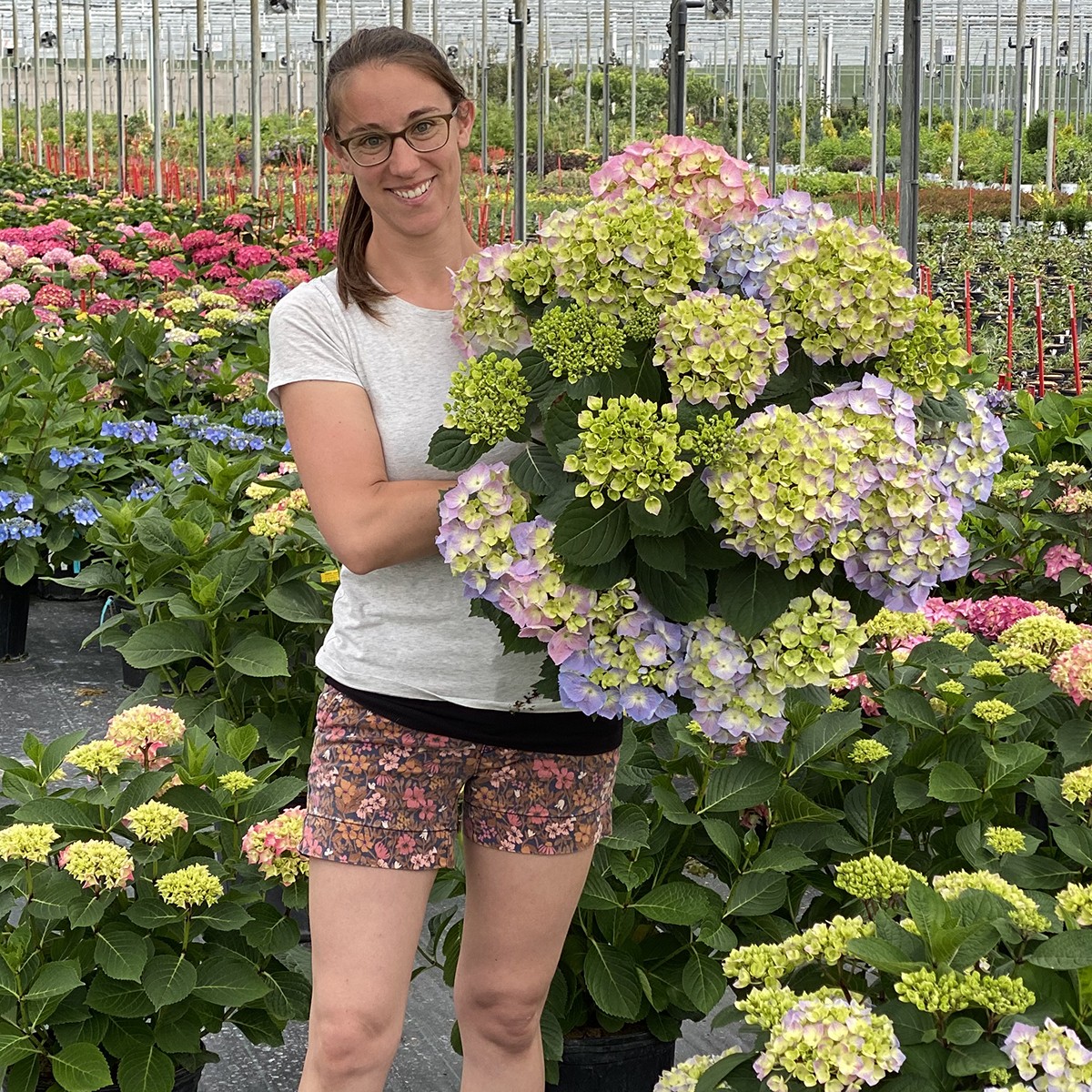
Meet the Breeder
Megan Mathey
Grand Haven, Michigan
WEE BIT INNOCENT®
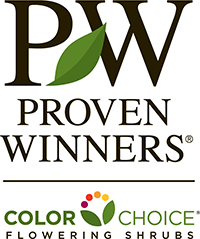
Bigleaf hydrangea
Hydrangea macrophylla
'SMNHMC'
PP#35,815; CBRAF
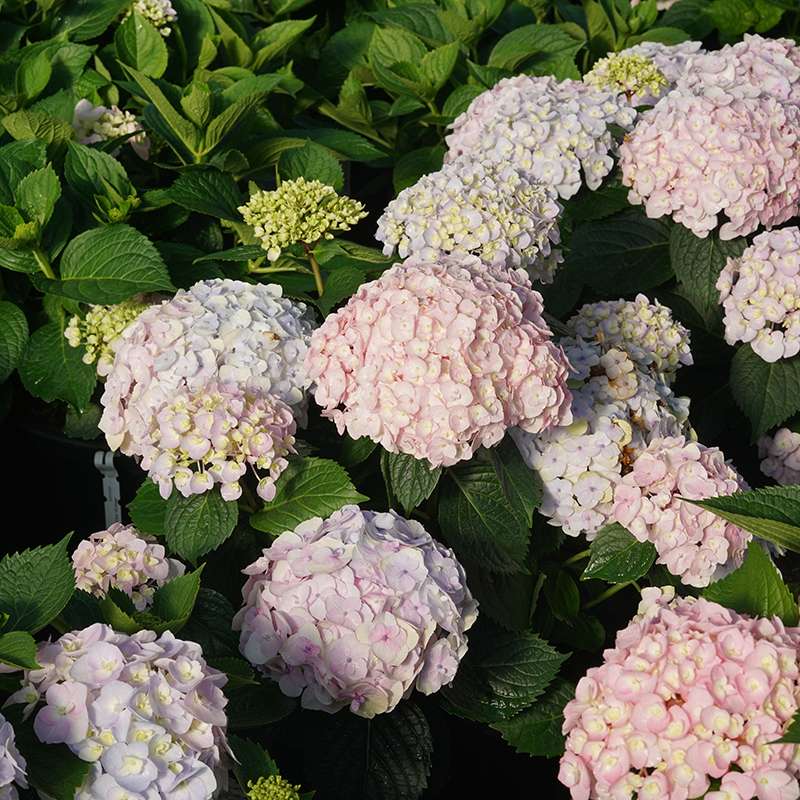
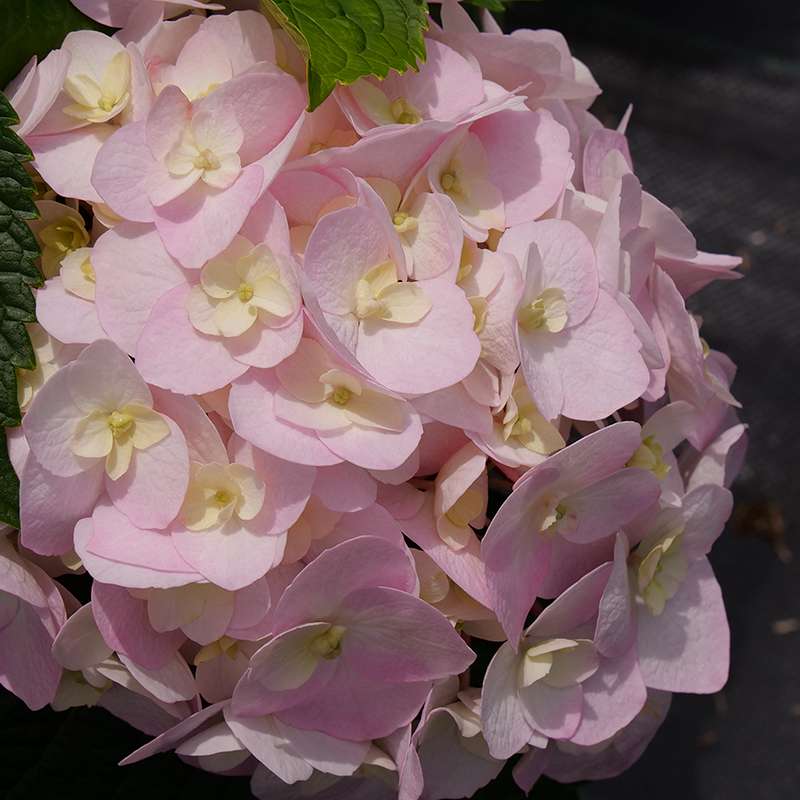
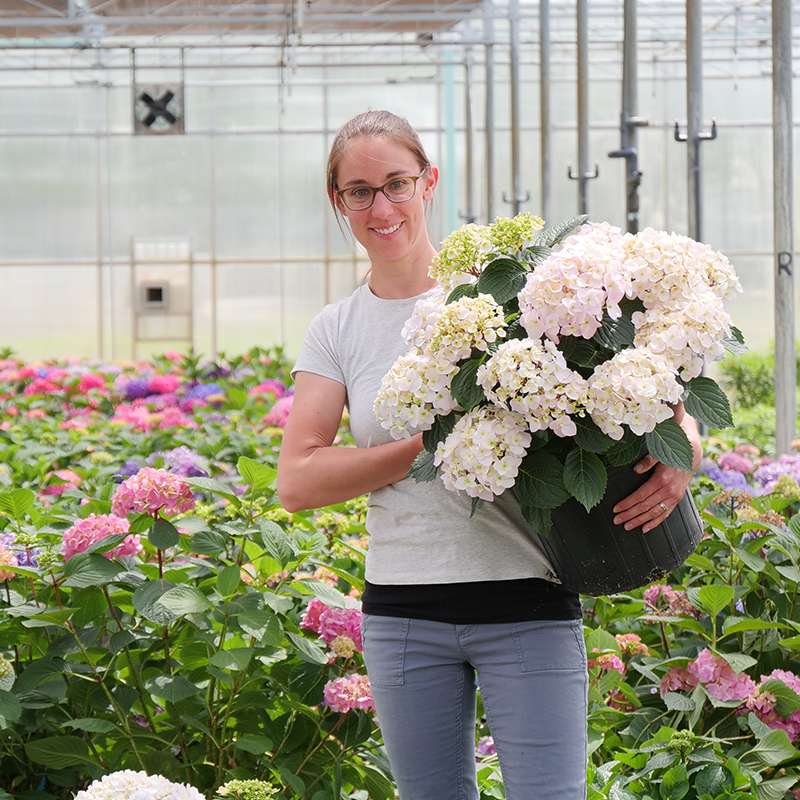
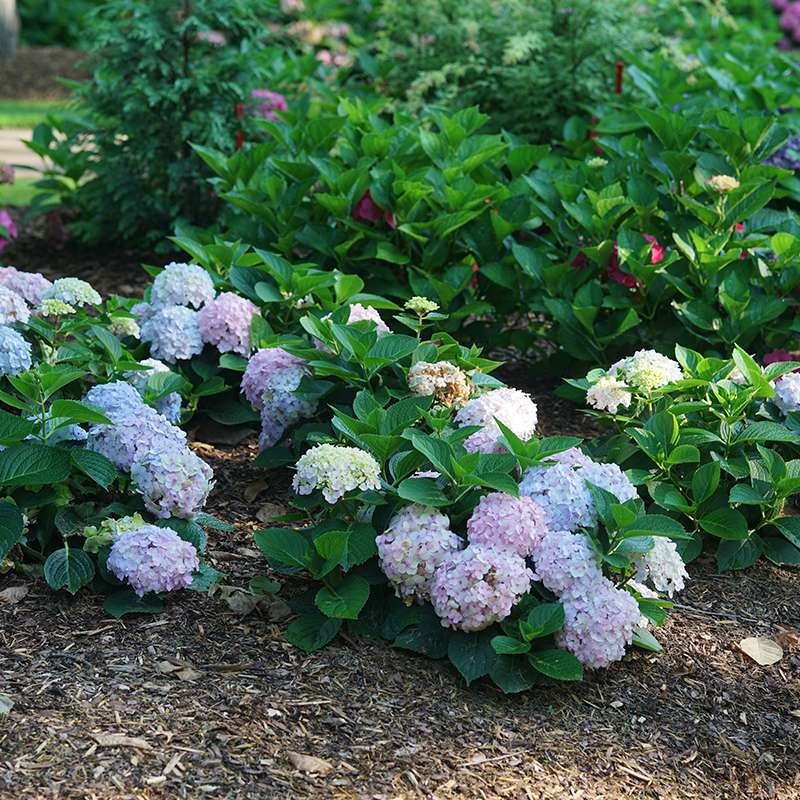
- Extremely showy
- Doubled florets
- High performance, even outdoors
- Description
We all know someone who is innocent - but just a wee bit. Wee Bit Innocent hydrangea (Hydrangea macrophylla) is for them, and for anyone who can appreciate a high performance hydrangea with drop-dead gorgeous looks. Large, rounded mophead flowers are comprised of doubled florets of a sweet-yet-sassy pink or blue; it also exhibits some rebloom in late summer and fall. This is one of those plants that, when it was on trial, everyone who saw it stopped and said, "Oooooh, that's so pretty!" Grow it and see for yourself! Like the other members of the Wee Bit® series, it combines florist quality blooms with outstanding landscape performance, making these the perfect substitutes for the Cityline series.
- USDA Zone
- 5 - 9 (-20°F/-28.8°C)
- Exposure
- Part sun
- Height
- 2'
- Width
- 2.5'
- Finish Time
- 0.5 season
- Type
- Deciduous
- Bloom Time
- Summer
- Flower Color
- Pink, Blue
- Foliage Color
- Green
- Liner Sizes
- 4", Quick Turn
General Care
Soil
Moist but well drained soils are best. Bigleaf hydrangeas may wilt in dry soils but also cannot take soggy conditions for any period of time. Tolerant of a range of soil pH levels, however, soil pH will influence flower color.Pruning
Avoid pruning bigleaf hydrangeas, except to remove any dead wood. These hydrangeas cannot be cut back or trimmed at any time of the year without impacting the bloom for either the current season or the next.Uses
Bigleaf hydrangeas are classic choices for flower gardens, cottage gardens, and seaside plantings. They also make a showy addition to foundation plantings and can be used for low hedges or edging.Growing Tips
Bigleaf hydrangeas benefit from a good layer of shredded bark mulch and afternoon shade, particularly in hotter climates. Apply a granular fertilizer formulated for flowering shrubs (like a rose fertilizer) if leaves start to yellow.Features: Alkaline soil, Clay soil, Compact, Cut flower, Disease resistant, Reblooming
Filters: Botanical genus: Hydrangea, Common name: Bigleaf hydrangea, Retail program: Proven Winners® ColorChoice®, USDA Zone 5, USDA Zone 6, USDA Zone 7, USDA Zone 8, USDA Zone 9, Exposure: Part sun, Bloom time: Summer, Pink flowers, Blue flowers, Green foliage
Features: Alkaline soil, Clay soil, Compact, Cut flower, Disease resistant, Reblooming
Filters: Botanical genus: Hydrangea, Common name: Bigleaf hydrangea, Retail program: Proven Winners® ColorChoice®, USDA Zone 5, USDA Zone 6, USDA Zone 7, USDA Zone 8, USDA Zone 9, Exposure: Part sun, Bloom time: Summer, Pink flowers, Blue flowers, Green foliage

